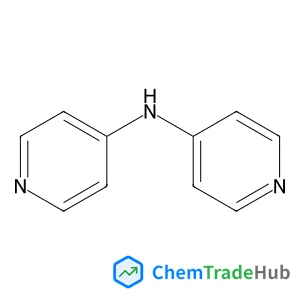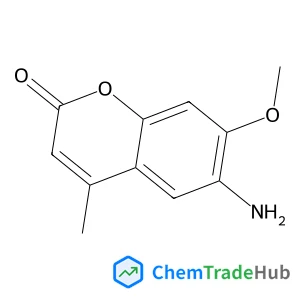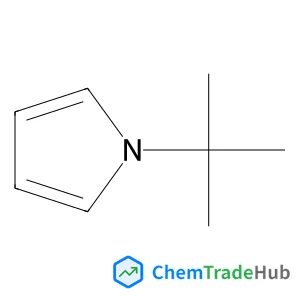Rechargeable molecular cluster batteries
Literature Information
Hirofumi Yoshikawa, Chieko Kazama, Kunio Awaga, Masaharu Satoh, Jun Wada
We fabricated a rechargeable molecular cluster battery, based on a cathode active material, [Mn12O12(CH3COO)16(H2O)4]. The charging–discharging experiments revealed rechargeable battery performance with a capacity of ca. 90 A h kg−1, while the first discharging process exhibited an extremely high value of 200–250 A h kg−1.
Related Literature
IF 6.367
Synthesis and optical and electronic properties of one-dimensional sulfoxonium-based hybrid metal halide (CH3)3SOPbI3IF 6.222
Sugar ketals as a platform molecule to overcome the limitation of converting biomass into green-hydrocarbons in a typical refineryIF 6.367
Developing a novel high performance NaNbO3-based lead-free dielectric capacitor for energy storage applicationsIF 6.367
High-performance tungsten carbide electrocatalysts for the hydrogen evolution reactionIF 6.367
Carbon-based photocatalysts for enhanced photocatalytic reduction of CO2 to solar fuelsIF 6.367
Three-terminal III–V/Si tandem solar cells enabled by a transparent conductive adhesiveIF 6.367
Effective utilisation of waste cooking oil in a single-cylinder diesel engine using alumina nanoparticlesIF 6.367
An overview of latest advances in exploring bioactive peptide hydrogels for neural tissue engineeringIF 6.843
Mechanically stable and economically viable polyvinyl alcohol-based membranes with sulfonated carbon nanotubes for proton exchange membrane fuel cellsIF 6.367
Source Journal
Chemical Communications
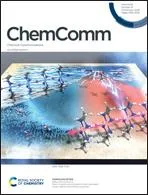
ChemComm publishes urgent research which is of outstanding significance and interest to experts in the field, while also appealing to the journal’s broad chemistry readership. Our communication format is ideally suited to short, urgent studies that are of such importance that they require accelerated publication. Our scope covers all topics in chemistry, and research at the interface of chemistry and other disciplines (such as materials science, nanoscience, physics, engineering and biology) where there is a significant novelty in the chemistry aspects. Major topic areas covered include: Analytical Chemistry Catalysis Chemical Biology and medicinal chemistry Computational Chemistry and Machine Learning Energy and sustainable chemistry Environmental Chemistry Green Chemistry Inorganic Chemistry Materials Chemistry Nanoscience Organic Chemistry Physical Chemistry Polymer Chemistry Supramolecular Chemistry
Recommended Compounds
Recommended Suppliers
 SL Kunststofftechnik GmbH
SL Kunststofftechnik GmbH Guangzhou Hengxing Refrigeration Machinery Manufacturing Co., Ltd.
Guangzhou Hengxing Refrigeration Machinery Manufacturing Co., Ltd. Friedrich Theysohn GmbH
Friedrich Theysohn GmbH Beijing Dongfang Baker Co., Ltd.
Beijing Dongfang Baker Co., Ltd. NMI Naturwissenschaftliches und Medizinisches Institut an der Universität Tübingen
NMI Naturwissenschaftliches und Medizinisches Institut an der Universität Tübingen PMA Prozess- und Maschinen-Automation GmbH
PMA Prozess- und Maschinen-Automation GmbH Wuhu Thompson Biotechnology Co., Ltd
Wuhu Thompson Biotechnology Co., Ltd Albert Handtmann Elteka GmbH & Co. KG
Albert Handtmann Elteka GmbH & Co. KG EspyChem (Shanghai) Co., Ltd.
EspyChem (Shanghai) Co., Ltd. Zhejiang Chetou Pharmaceutical Co., Ltd.
Zhejiang Chetou Pharmaceutical Co., Ltd.










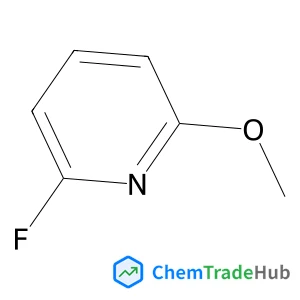
![37845-14-0 - 4,5-Dihydronaphtho[1,2-c]furan-1,3-dione 37845-14-0 - 4,5-Dihydronaphtho[1,2-c]furan-1,3-dione](/structs/378/37845-14-0-f8d0.webp)
